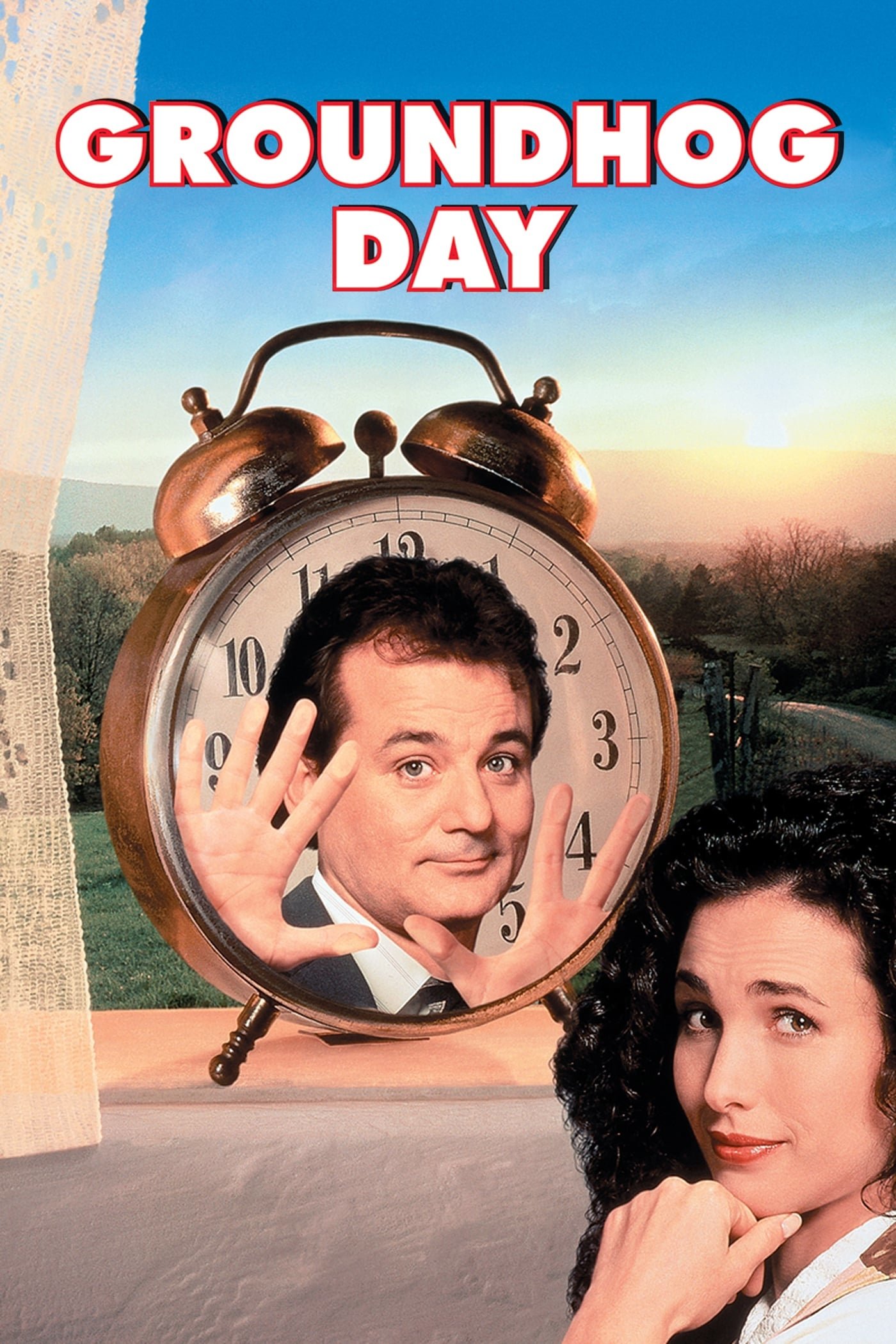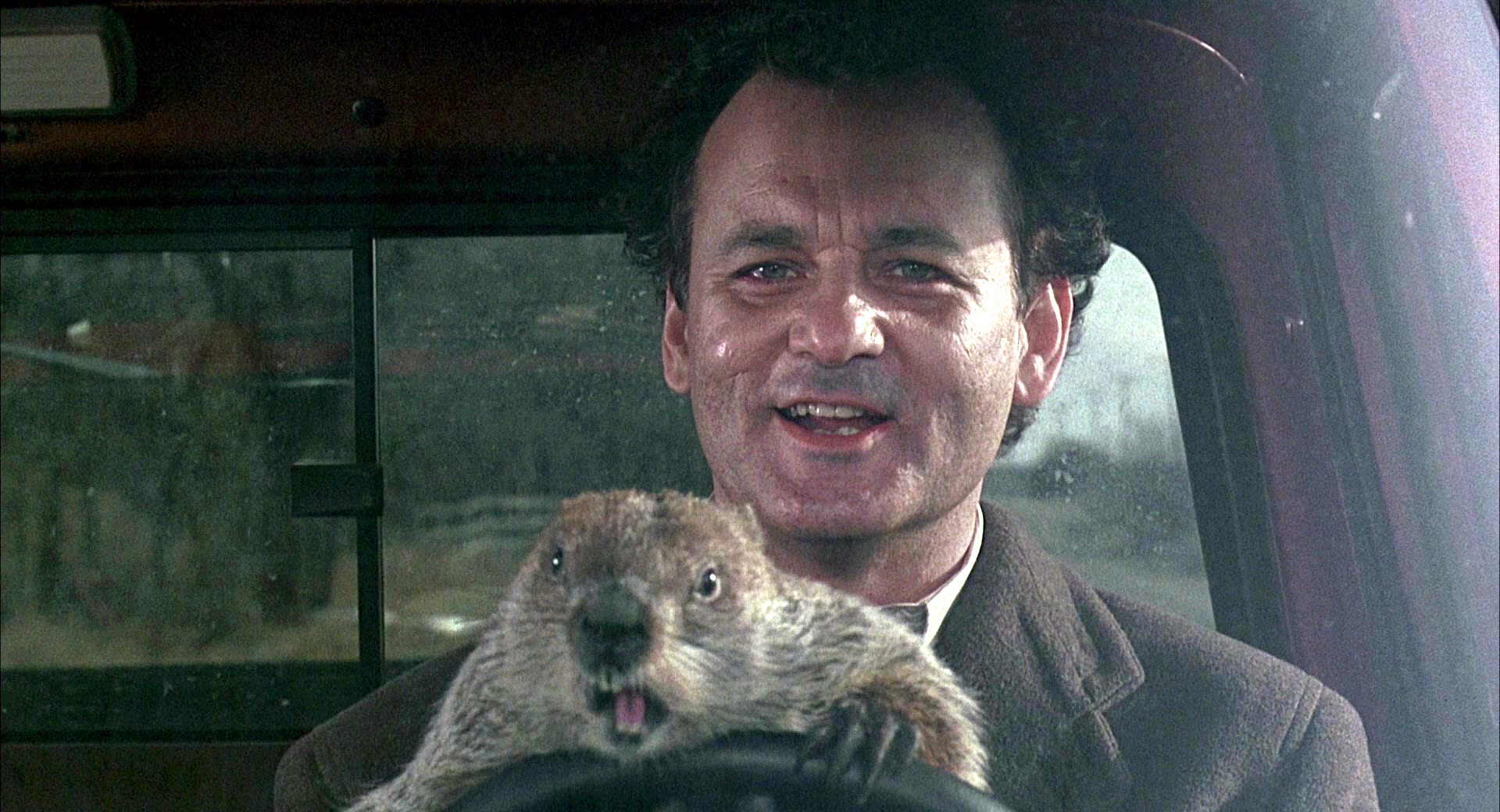Gallery
Photos from events, contest for the best costume, videos from master classes.
 |  |
 |  |
 |  |
 |  |
:max_bytes(150000):strip_icc():focal(399x0:401x2)/groundhog-day-800-d902871ec3f444ed9ee74681effd8d99.jpg) |  |
 |  |
Exploring Aristotle’s virtue ethics and Marx and Engels’s communist individual through the 1993 movie, Groundhog Day. Groundhog Day (1993) is a classic of philosophical cinema. There's nothing better for character development than spending 10,000 years trapped in a time loop. Here's the philosophy behind this classic comedy. If you haven’t seen the movie, you can check out the trailer above. The movie beautifully illustrates the way Bill Murray discovers true happiness in the pursuit of Aristotle’s virtuous “good life”. Groundhog Day: Special Buy New $19.97 (as of 05:03 UTC - Details) The article ‘Phil’s Shadow‘ below is a wonderful movie review Groundhog Day and Aristotle’s Philosophy. In the movie “Groundhog Day”, a man named Phil is forced to relive the same day repeatedly. Although at first glance this may seem like torture, it causes Phil to become a more happy and virtuous man. In the movie Groundhog Day, Phil was first a self-centered individual, which is quite the opposite of Aristotle's views on being a virtuous individual. But then something extraordinary happens when he starts reliving the same day over and over. Michael P. Foley has a great article in Touchstone Magazine exploring some of the philosophical aspects of the movie Groundhog Day, starring Bill Murray and Andie MacDowell. Ranging from Nietzsche to Machiavelli and Aristotle to Augustine, Foley examines the movie from the vantage point of both philosophy and theology. Here is my favorite excerpt: Taylor Metcalf Professor Maloney 04/03/2019 Groundhog Day: An Aristotelian Film When thinking about Aristotle, Western philosophy is the overall concept that most people would relate to that name. Aristotle’s ideas directly relate to developing one’s moral character, and by doing that being able to have a fulfilling life. Groundhog Day, Bill Murray, and Aristotle, Uploaded 2021 by Fulvio Di Blasi. Every day the clock radio from Groundhog Day!, Uploaded 2017 by TurricanNP Here I briefly explain a crucial aspect of Aristotle's virtue ethics through a beautiful film with Bill Murray entitled "Groundhog Day" This video details some of the influences that exist between the Groundhog Day film and Aristotle's Lives as mentioned in the Nichomachaen Ethics. This is a connection that I noticed after watching it for the 50th maybe time this last January. Groundhog Day The movie Groundhog Day, is labeled as a comedy, but in fact it is a story about love, a story about Phil's transformation based on love. Phil his character is forced to repeat the same day over and over again. He goes through many phases in this movie and in the end changing his persona. When In my role at a politics-focused newspaper, there aren’t a lot of opportunities to play movie critic. But it’s Groundhog Day again, and the 1993 movie bearing that name is among my favorites, so I’ll take the liberty just this once. So being forced to live a day over and over is indeed a rare way to gain some perspective on our daily lives, [4] and Groundhog Day’s suggestion, together with Aristotle, is that exercising the virtues leads to happiness because it develops our best potential, our true nature, our path to flourishing and to achieving, realizing, perfecting Groundhog Day has long been one of my very favorite movies. On one level it is a very funny movie; on another, it is a particular take on Nietzsche’s doctrine of eternal recurrence. It is definitely a film that rewards rewatching. In fact, the legendary film critic Roger Ebert reviewed it twice and included it in his list of great movies. Groundhog Day has been widely viewed and interpreted, by everyone from therapists, to Wiccans, to followers of the Chinese Falun Gong movement. In his book, How to Write Groundhog Day (2012), screenwriter Danny Rubin tells us, “The first note [after the film premiered] I remember came from a monk in Germany. Aristotle’s Philosophical Views in Groundhog Day The philosopher’s idea that best fit the movie Groundhog Day is Aristotle. The reoccurring issues throughout the movie is self-fulfillment and happiness. The leading character Phil struggles to be happy with himself and his life and he is what we consider a “half empty” character. In Groundhog Day (1993), Murray’s character, Phil Connors, finds that no matter what he does, every morning he wakes up at the same time, in the same bed, in the same hotel, in the same small American town, on the same day (February 2nd, ‘Groundhog Day’). In the subsequent twenty-four hours he is free to do anything he likes, but knows he Initially, Phil is driven insane by his curse, but eventually learns to use his time to better himself and treat everyone in Punxsutawney with kindness, finally getting Rita's (Andie MacDowell) approval and ending the never-ending Groundhog Day loop. Related: Groundhog Day’s Best Theory Makes The Happy Ending A Curse One situation in which the opinions of these philosophers could be used to evaluate the morality of a person is in the movie Groundhog Day, specifically looking at the actions of the character Phil. At the beginning of Groundhog Day, Phil is sarcastic and selfish. However, throughout the film, we see his character develop to be more wholesome. 7. The movie was added to the United States National Film Registry: In 2006, Groundhog Day was selected for preservation in the National Film Registry of the Library of Congress, highlighting its cultural, historical, and aesthetic significance. 12 FAQs about Groundhog Day Movie: 1. Is Groundhog Day based on a true story?
Articles and news, personal stories, interviews with experts.
Photos from events, contest for the best costume, videos from master classes.
 |  |
 |  |
 |  |
 |  |
:max_bytes(150000):strip_icc():focal(399x0:401x2)/groundhog-day-800-d902871ec3f444ed9ee74681effd8d99.jpg) |  |
 |  |